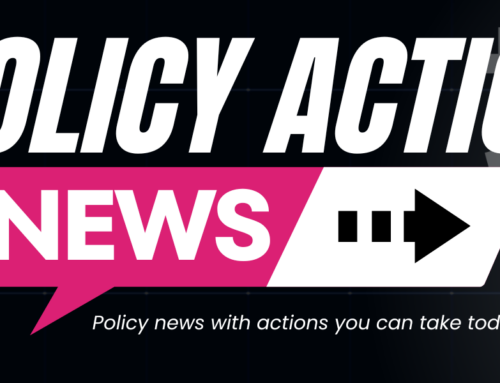MHS has been happening for years. All national networks of People living with HIV and scores of human rights and data privacy advocates have raised serious concerns that the personal medical information of people living with HIV is being used 1) for surveillance purposes without meaningfully involving people living with HIV in program planning, 2) without informed consent, 3) without sufficient data privacy protections to ensure public health data not be used in civil, criminal or immigration proceedings, and 4) in a dangerous political environment where people living with HIV and communities most impacted by HIV continue to be over-policed, over-surveilled, and under-protected. In this context, MHS gives the government even more data on the bodies of people living with HIV, which can then introduce new ways to police and control them.
Here’s where PACHA comes into play: In October 2022, PACHA unanimously passed an historic and much needed Resolution on Molecular HIV Surveillance and Cluster Detection Response. Specifically, the resolution clearly and forcefully recommends that the CDC address some of the serious concerns raised by human rights advocates. PACHA recommended that the CDC tell jurisdictions to adapt their implementation of MHS/CDR to account for local conditions, including health data privacy protections and laws criminalizing people living with HIV, and to allow folks to opt out of HIV data sharing. This would open the door for jurisdictions to halt molecular HIV surveillance until concerns about HIV data privacy and criminalization are addressed, and to ensure that people living with HIV can consent to how their genetic data is used.
During the most recent PACHA meeting, Office of National AIDS Policy (ONAP) Director Harold Philips presented a federal government response to PACHA’s resolution, asserting that CDC would not take up the PACHA recommendations pertaining to informed consent and that ONAP was not in support of pausing molecular HIV surveillance activities while state-level data privacy protections are put in place. During public comment, all people living with HIV who spoke went on record to revoke consent of their HIV genomic sequence data being used with the following statement. “I hereby revoke consent for the sharing of any health information related to my HIV diagnosis, genotyping, or any other related information.”
It is unacceptable for the CDC to continue funding MHS as a core federal HIV strategy without taking responsibility to ensure that sensitive health data is robustly protected and that human rights of vulnerable communities are not undermined. The federal government, including CDC, must use every lever of power to ensure consistent and robust data protections regardless of who someone is or where they live. We will continue to demand that the federal government enact protections and end any forms of data surveillance that place QTBIPOC communities in harm’s way.
Join us by signing onto the US People Living WIth HIV’s Open Letter demanding moratorium on MHS.




 Hot Topic:
Hot Topic:



